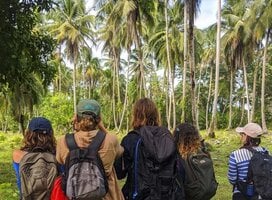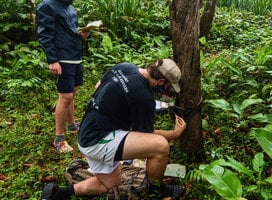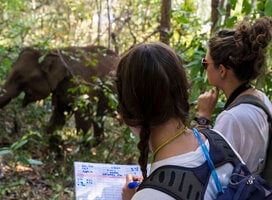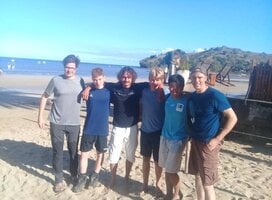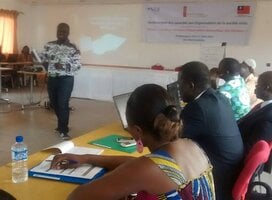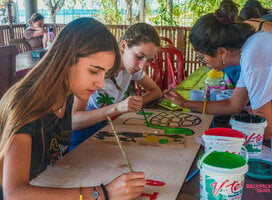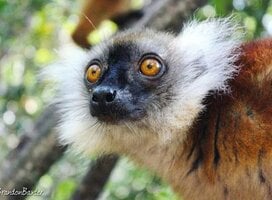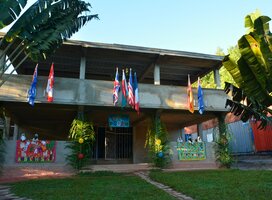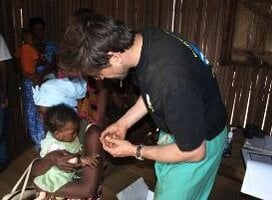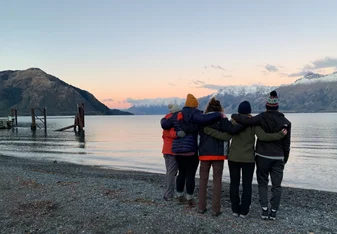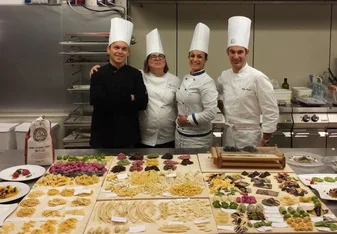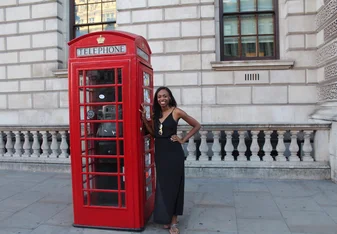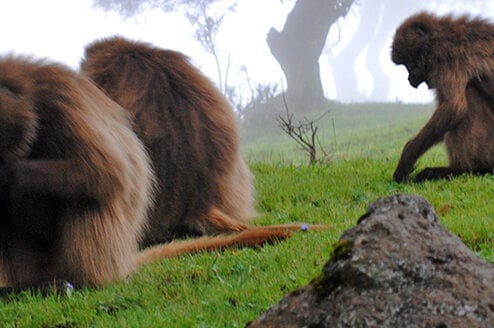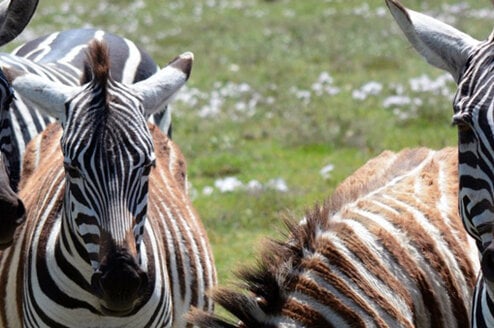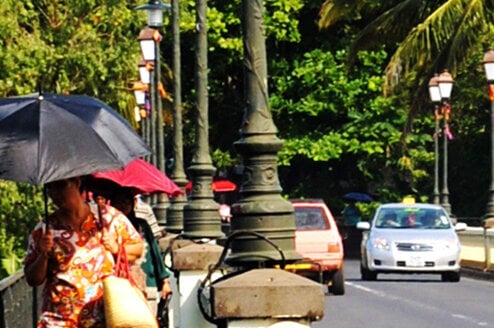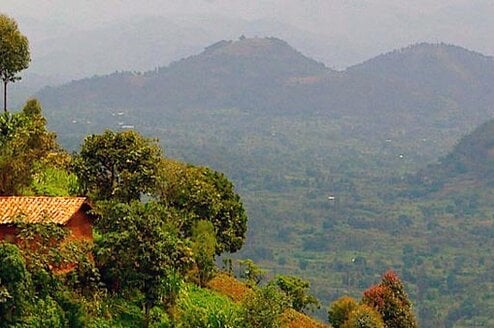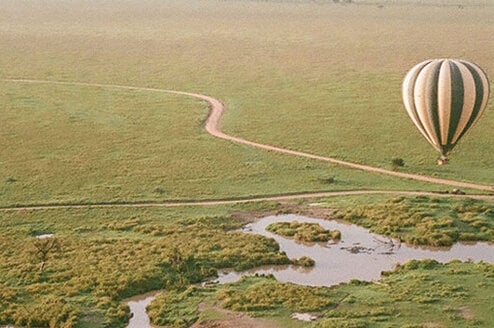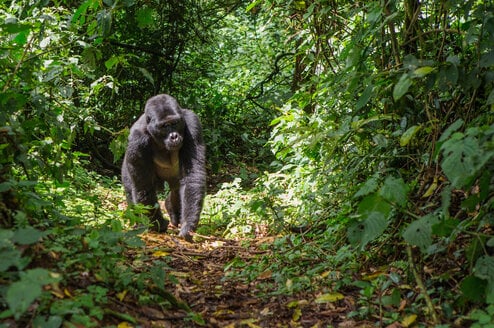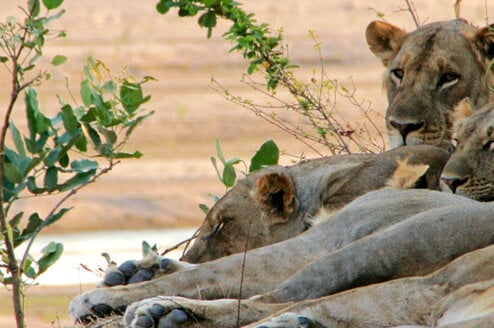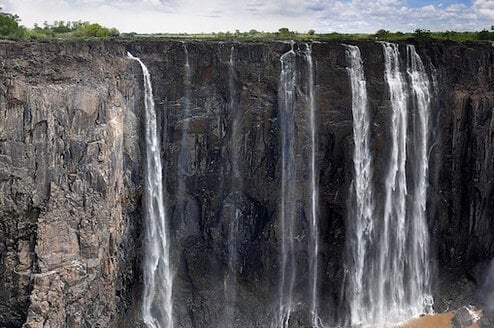Internships in Madagascar
An island country off the coast of Southeast Africa, Madagascar is known for its amazing biodiversity -- its famously adorable ring-tailed lemurs draw thousands of tourists to the country every year.
Several waves of migrants to the island from South East Asia, East Africa, and elsewhere have made it a cultural melting pot with a diverse set of beliefs and customs.
At the same time, it's still a developing country and full of opportunities for interns to learn more about ecological conservation, community development, and politics and development.
Madagascar’s beautiful landscape, unique history, and extremely friendly population make it a great place to visit. Madagascar may not be the easiest destination to live and is definitely an adventure. But if you're looking for an off the beaten path destination for your internship and to get experience working in a developing nation, there's no other place like it.
Conservation
Madagascar’s biodiversity is amazingly precious, but economic and global development processes have begun to negatively affect the country’s natural ecosystems. Conservation, environmental education, and biodiversity research are new popular areas of work in Madagascar. Several non-profit organizations and environmentally focused companies are investing time and research into assisting with wildlife conservation. Intern in Madagascar to get some hands-on experience and help the world preserve its diversity!
Community Development
Although Madagascar’s growing ecotourism industry has provided a small economic boost, many people in Madagascar still live in poverty. There are several opportunities to assist with community development and education support in some of the smaller villages in the country.
There are a variety of projects that interns can work on, including building schools, providing energy-efficient stoves and wells for clean water, and teaching children about health. For those interested in making a difference in society, an internship in Madagascar is a great way to begin.
When and Where to Look for an Internship
The easiest way to find an internship in Madagascar is to contact a non-profit organization or apply through a program provider. Internship program providers usually have established connections with organizations in Madagascar that offer internship opportunities. Pay attention to the application deadlines for these programs!
Cost of Living in Madagascar
In general, the cost of living in Madagascar is extremely low. Fresh fruit and vegetables are cheap and abundant -- though it does help to know a few phrases of Malagasy to get local prices instead of foreigner prices, of course!
For imported goods, such as sunscreen, pads and tampons, shampoo, etc. you will pay more than you're used to at home -- but not too much more. Be sure to pack what you can of these items before arriving.
While the currency used in Madagascar is the Malagasy Ariary, the prices have been converted to USD to help you get a better gage of the costs. Note that 1 USD is roughly 2,000 Ariary.
Also note that in some regions of Madagascar, people will quote you prices in the old currency (Franc; 1USD = 10,000 Franc). Be sure to ask "Franc or Ariary" if a price seems high.
- 1 bedroom apartment in Antananarivo: $355 / month
- 1 bedroom apartment in a smaller city: $50 / month
- 1 meal at a local hotely: $1
- 1 expensive meal: $5
- 1 way in-city bus ticket: $0.17
Etiquette
The work culture in Madagascar, and the culture in general, is relatively relaxed and laid back. Events don't always happen on time, and things happen at a slower pace.
If you are working in a business environment, it is best to dress more conservatively and professionally. If you are volunteering with a community development center, the dress code is less defined.
The most common form of greeting is a handshake with the right hand while the left hand holds the right arm below the elbow. In meetings, you will often see newcomers enter and shake everyone's hand individually.
In general, people in Madagascar communicate on a very friendly level, and there is little to no personal space.
After the New Year, it's customary to say "happy new year" to whomever you haven't seen since before the New Year -- even if it's June.
Language
The official languages spoken in Madagascar are Malagasy and French. The locals will be very impressed if you can communicate in Malagasy, but knowing the language is by no means a requirement to work there. It is, however, incredibly helpful to know a few phrases for daily life.
Most official or professional communication is conducted in French and English to improve relations with other foreign countries -- though English is rarely, if ever, spoken outside of major cities.
Networking
The concept of professional networking in Madagascar is quite new. However, people have always highly valued developing good relationships with others. The Malagasy culture emphasizes friendship and familial connection, so “networking” is almost a daily part of life.
Work and Labor Laws in Madagascar
Madagascar’s labor laws establish basic guidelines for employment and compensation. While international interns in Madagascar are usually unpaid, they are treated with the same respect as other workers.
